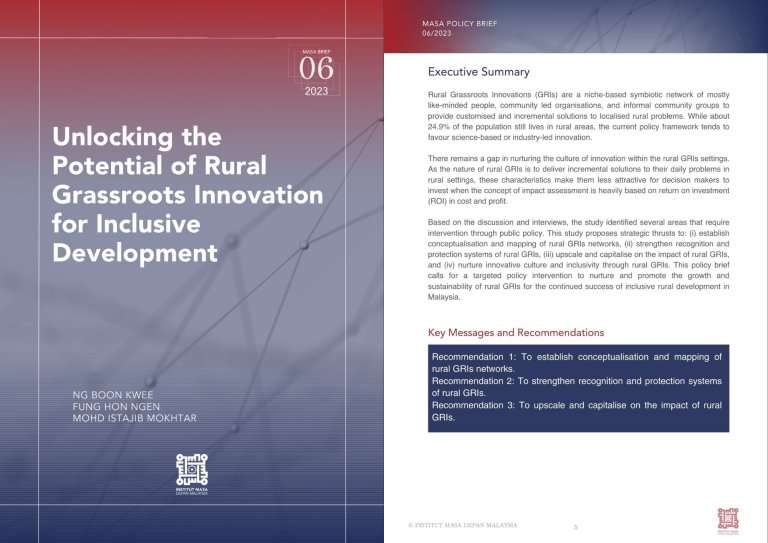Rural Grassroots Innovations (GRIs) are a niche-based symbiotic network of mostly like-minded people, community led organisations, and informal community groups to provide customised and incremental solutions to localised rural problems. While about 24.9% of the population still lives in rural areas, the current policy framework tends to favour science-based or industry-led innovation.
There remains a gap in nurturing the culture of innovation within the rural GRIs settings. As the nature of rural GRIs is to deliver incremental solutions to their daily problems in rural settings, these characteristics make them less attractive for decision makers to invest when the concept of impact assessment is heavily based on return on investment (ROI) in cost and profit.
Based on the discussion and interviews, the study identified several areas that require intervention through public policy. This study proposes strategic thrusts to: (i) establish conceptualisation and mapping of rural GRIs networks, (ii) strengthen recognition and protection systems of rural GRIs, (iii) upscale and capitalise on the impact of rural GRIs, and (iv) nurture innovative culture and inclusivity through rural GRIs. This policy brief calls for a targeted policy intervention to nurture and promote the growth and sustainability of rural GRIs for the continued success of inclusive rural development in Malaysia.
